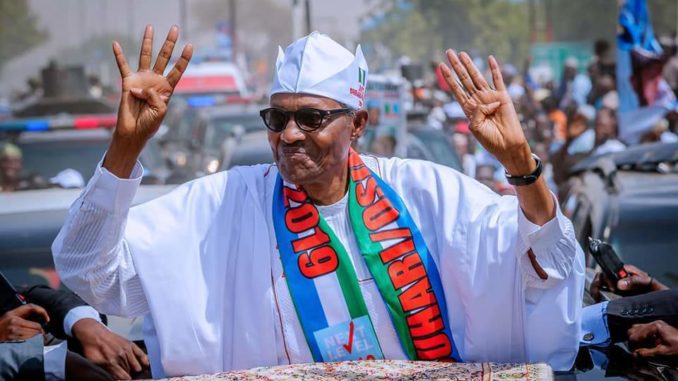
As the Muhammadu Buhari administration marked the newly-agreed Democracy Day, June 12, the other day, against the backdrop of expectations of truly representative democracy which Nigerians have, it can be said that the Nigerian state actors have not delivered on the promise of democracy.
There is therefore a sense in which it can be claimed that years on, what Nigeria has is an appearance of democracy, not its content and virtues. This is the direct result of the failure of the leaders to listen to the people.
To be sure, there are sundry contradictions that have characterised the extant democratic process in the country. Of note is the failure to hold free and fair elections for the most part.
Since 1999, elections that ushered in the extant republic, subsequent elections held in the country have not met the standards of a free and fair election and international best practices.
Elections have been rigged so much that at one point, the Commonwealth Election Observers noted that the country went below the standard it set for itself.
New forms of electoral malpractices like vote-buying have since manifested over time. The 2019 general elections took the country to an all-time low in electoral reckoning to the effect that questions are being asked about the state of Nigerian democracy. Is the country de-democratising or headed in some non-descript direction? This is the big question in quest of an answer.
However, the singular redeeming feature of this democracy has been the judiciary. It has helped ordered the democratic absurdities. Its interventionist nature ought not to be the order of the day if the process of conducting free and fair elections had not been perverted.
Also, there have been observable blatant negations of the rule of law. Court orders have been gleefully undermined in ways that may open the floodgate to self-help. For example, the former National Security Adviser (NSA), Col. Sambo Dasuki (rtd), has been denied his freedom despite judicial pronouncements. Similarly, the leader of the Shiite Moslem group, Sheik El-Zazaky has been held since 2015 in an undisclosed location in breach of court orders.
Generally, the ruling government has sought to intimidate the judiciary as judges homes have been raided at odd hours.
As Louis Blandeis once observed, “crime is contagious. If the government becomes a lawbreaker, it breeds contempt for law; it invites every man to become a law unto himself; it invites anarchy.” But unfortunately, this is the state of affairs in the country today. It is bad enough that show of loyalty to the ruling party could earn one forgiveness of sin against the people and the state. This certainly does not bode well for nation-and state-building. Rather, it diminishes the standing of the country.
The question of corruption remains a recurring decimal in the polity as hard-earned resources of the country are frittered away through all forms of illicit financial flows and extravagant expenditure by public officials.
Contracts are not only inflated but they are also shoddily implemented and sometimes abandoned. Upon this, state-actors have embarked on a borrowing spree to fund recurring budget deficits. There have been policies out there and their impacts on the lives of the people have been largely unedifying. Little wonder that the country has now earned the infamous ranking of being the global headquarters of poverty.
The strain of poverty is further aggravated by growing insecurity in the country upped by the deadly activities of Fulani herdsmen, ranked on the terrorism index as the fourth most deadly terrorist organisation in the world and which the government of the day has treated with kid gloves.
As Constitution has clearly stated, the primary purpose of government is to secure lives and property of its citizens. Things are, however, curiously getting to the point of distrust of the government. As some citizens have reasoned, people should not be afraid of their government. Government ought to revere the people as the ultimate repository of sovereignty by providing public good for the wellbeing of all within the political community. Unfortunately, Nigerians are yet to see the so-called dividends of democracy in concrete terms.
Twenty years after the commencement of the current democratic journey, the country still suffers from infrastructural deficits. Power generation is more or less on paper, mere statistical projection than real supply. From the presidency to the lowest of public offices, health tourism has remained a fad among occupants.
In sum, Nigerian democracy has been facile—not deep and not really democratic. It is hemmed in what democratic scholars have qualified variously as ‘semi-authoritarian,’ ‘grey zone’ and ‘illiberal.’ What Nigerians have had in the last two decades is civilian rule not democracy. Democracy without democrats can only breed brigands who thrive in an illiberal environment. There is a deficit of the culture of service.
However, there is chance for redemption and for improvement. Truly, elections can be free and fair; and people can be empowered to enjoy the dividends of democracy. Intrinsically, democracy is about the democratisation of power and authority in ways that people can access public good to improve their wellbeing. Leaders can be more committed and turn the indices of good governance around in health, education, infrastructure and security of lives and property.
So far, this has not happened. In the light of the state of the nation, most citizens would like to remind the leaders at all levels that this is the time to prioritise nation-building and secure the future of Nigeria.
END

Be the first to comment